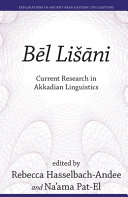

Most ebook files are in PDF format, so you can easily read them using various software such as Foxit Reader or directly on the Google Chrome browser.
Some ebook files are released by publishers in other formats such as .awz, .mobi, .epub, .fb2, etc. You may need to install specific software to read these formats on mobile/PC, such as Calibre.
Please read the tutorial at this link: https://ebookbell.com/faq
We offer FREE conversion to the popular formats you request; however, this may take some time. Therefore, right after payment, please email us, and we will try to provide the service as quickly as possible.
For some exceptional file formats or broken links (if any), please refrain from opening any disputes. Instead, email us first, and we will try to assist within a maximum of 6 hours.
EbookBell Team

4.3
28 reviewsAkkadian, a Semitic language attested in writing from 2600 BCE until the first century CE, was the language of Mesopotamia for nearly three millennia. This volume examines the language from a comparative and historical linguistic perspective.
Inspired by the work of renowned linguist John Huehnergard and featuring contributions from top scholars in the field, Bēl Lišāni showcases the latest research on Akkadian linguistics. Chapters focus on a wide range of topics, including lexicon, morphology, word order, syntax, verbal semantics, and subgrouping. Building upon Huehnergard’s pioneering studies focused on the identification of Proto-Akkadian features, the contributors explore linguistic innovations in the language from historical and comparative perspectives. In doing so, they open the way for further etymological, dialectical, and lexical research into Akkadian.
An important update on and synthesis of the research in Akkadian linguistics, this volume will be welcomed by Semitists, Akkadian language specialists, and scholars and students interested in historical linguistics.
In addition to the editors, the contributors to this volume include Paul-Alain Beaulieu, Øyvind Bjøru, Maksim Kalinin, N. J. C. Kouwenberg, Sergey Loesov, Jacob J. de Ridder, Ambjörn Sjörs, Michael P. Streck, and Juan-Pablo Vita.